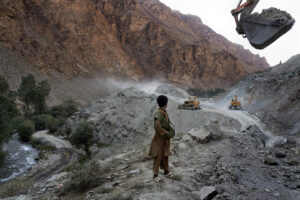MONITORING (SW) – Médecins Sans Frontières, aka Doctors Without Borders (MSF), has warned that an Israeli offensive on Rafah would be “catastrophic” for the estimated 1.5 million Palestinians sheltering in the city.
“Rafah is the end of the line,” the humanitarian organization said in a post on X on Friday. “There is nowhere else to flee.”
Meanwhile, The top United Nations court said that it notes the “perilous” situation in the southern Gaza city of Rafah, but has declined South Africa’s request for urgent measures to safeguard Palestinians being threatened by an Israeli ground assault there.
“The Court notes that the most recent developments in the Gaza Strip, and in Rafah in particular, ‘would exponentially increase what is already a humanitarian nightmare with untold regional consequences’, as stated by the United Nations Secretary-General,” the International Court of Justice (ICJ) said in a statement on Friday.
It said the situation in Rafah “demands immediate and effective implementation of the provisional measures indicated by the Court in its Order of 26 January 2024”, when it ordered Israel to take all steps within its power to ensure genocidal acts are not being committed in its war on Gaza.
However, the court “does not demand the indication of additional provisional measures”, its statement added.
PRESS RELEASE: the #ICJ issues its decision on South Africa’s request for additional provisional measures in the case of Application of the Convention on the Prevention and Punishment of the Crime of Genocide in the Gaza Strip (#SouthAfrica v. #Israel) https://t.co/dh9olqXtD9 pic.twitter.com/KLIMOD69uo
— CIJ_ICJ (@CIJ_ICJ) February 16, 2024
South Africa said on Tuesday that it had lodged an “urgent request” with the ICJ to consider whether Israel’s military operations targeting Rafah breach provisional orders the court handed down last month in a case alleging genocide.
Israel on Thursday called on the court to reject the request, saying: “South Africa’s unjustifiable claims make clear that its request is not driven by any change in circumstances, nor does it have any basis in fact or law.”
People in Rafah are ‘desperate, hungry, and terrified’: UN
People in Rafah are in “such dire need that they stop aid trucks to take food and eat it immediately”, the UN humanitarian agency (OCHA) has said in its latest daily update.
OCHA said that this showed “the severity of their desperation and hunger” amid the “alarming” humanitarian crisis in the overcrowded city in southern Gaza.
Makeshift shelters in Gaza have become congested and people are “desperate, hungry, and terrified”, OCHA added.
OCHA added that there is “an urgent need” for more delivery trucks to enter Gaza “to ensure the entire population’s nutritional requirements are met”.
Aid can only enter the Gaza Strip via the Rafah and Kerem Shalom (Karem Abu Salem) crossings, meaning that food deliveries to central and northern Gaza must first pass through Rafah.
Meanwhile, Israeli authorities are continuing to block a large shipment of flour for the Gaza Strip at the port of Ashdod.

Hunger crisis in Gaza at ‘unprecedented levels, as people run out of even animal feed to eat’
Hunger in Gaza has become so serious that people have even run out of animal feed to eat, development charity ActionAid has said.
“Every single person in the territory” is now experiencing extreme levels of hunger, the charity said in a statement on Friday.
Riham Jafari, advocacy and communications coordinator at ActionAid Palestine, said the situation will get worse if Israel goes ahead with its planned assault on Rafah.
“Aid operations will grind to a complete halt, denying a lifeline to hundreds of thousands of people,” Jafari said.
“The consequences are unimaginable. Governments around the world must do everything in their power to prevent a further onslaught in Rafah and push for a permanent and immediate ceasefire. It’s the only way to stop the indiscriminate killing of civilians, allow aid to enter Gaza and be distributed safely at scale to prevent famine and deadly disease outbreaks.”

Only 20 aid trucks entered Gaza on Thursday: UN
The rate of aid trucks entering Gaza has dropped significantly over the past week according to data released by the UN humanitarian agency (OCHA).
Between February 9 to 15, on average, less than 43 aid trucks entered Gaza per day, compared with an average of 133 trucks the week before.
The deliveries are still far below the average of 500 trucks per day that entered Gaza before October 7, 2023.






